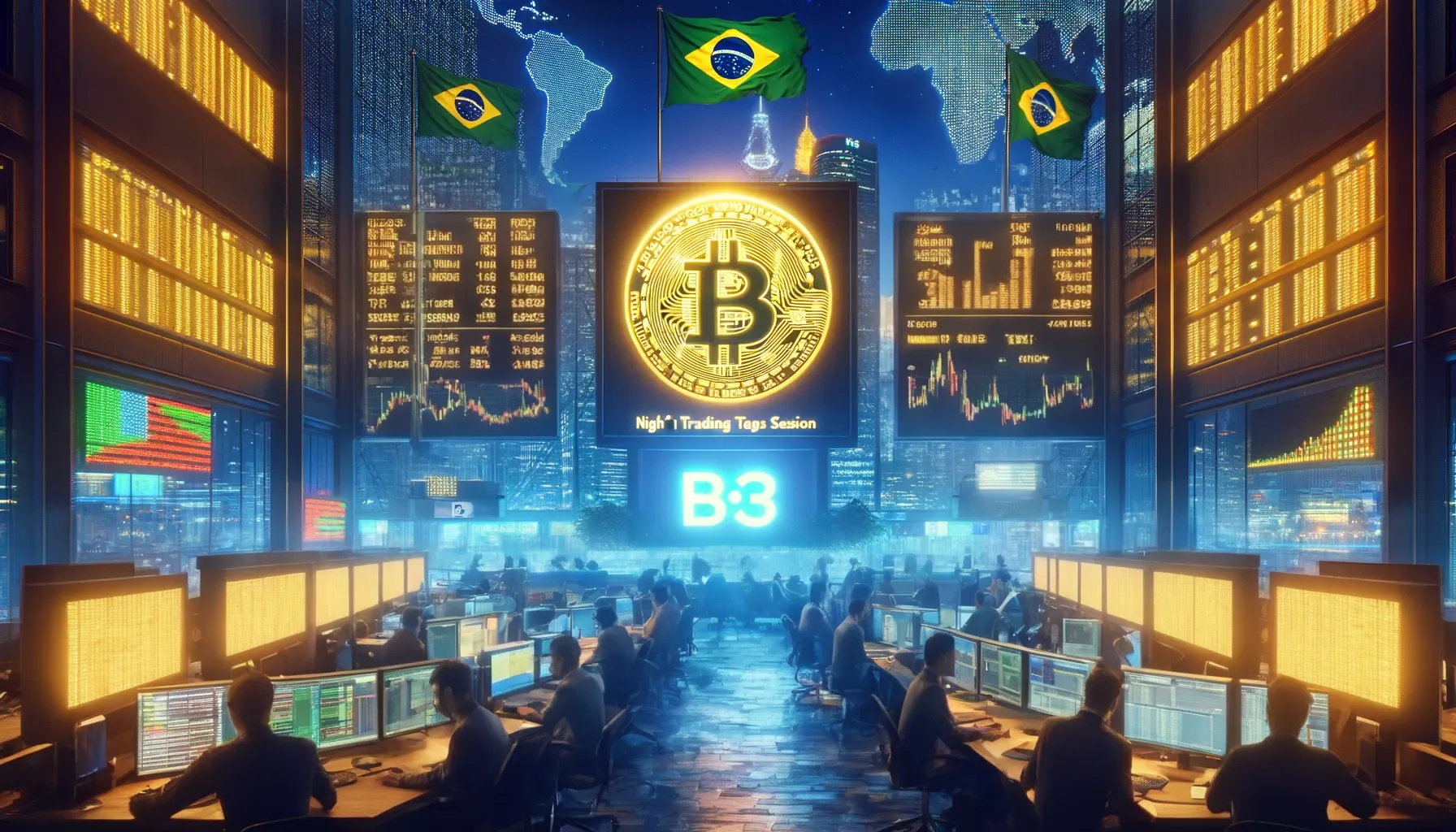Brazil's main stock exchange, B3, will launch night trading sessions later this year featuring Bitcoin ETFs and Ibovespa futures. The move will see trading hours extended to 9:45 PM local time (which is 12:45 a.m. in London and 7:45 p.m. in New York), a response to the increasing demand from individual investors for more flexible trading options.
Besides Bitcoin, B3 will open trading for Ibovespa ETFs—the country’s equivalent to the U.S. S&P 500.
"There's a significant number of people who wish to trade at the end of the day. We perceive a certain pent-up demand for such an operation,” said Gilson Finkelsztain, President of B3, in a Thursday press conference. However, he noted, “This is a test. It increases cost, increases risk. We need to test whether it will be good or bad for liquidity."
This expansion of trading hours is not just a logistical change but signifies a broader shift in Brazil's approach to financial markets. Brazil has been at the forefront in embracing cryptocurrency, and is home to the most crypto ETFs in the Americas. The country's first crypto ETF, HASH11, was approved in 2021, setting a precedent in the region. In contrast, the United States only recently approved its first spot Bitcoin ETF in January 2023 and has no applications for any spot crypto ETF featuring altcoins.
Finkelsztain also said that B3 is also considering extending its normal trading sessions for one more hour, and wants to increase its liquidity as a strategic goal for this year.
Brazil’s crypto love affair
The integration of digital assets into traditional financial structures is increasingly prevalent. Major Brazilian banks and brokers are intensively exploring blockchain and crypto-oriented business models. Itaú (Brazil’s largest private bank) is delving into tokenized assets, and Nubank, Brazil's largest digital bank, has introduced its native cryptocurrency, NucoinEven Brazil’s Central Bank is testing its own CBDC, the DREX, which will run on a distributed ledger. Additionally, several key banks have developed partnerships or proprietary brokers to offer Bitcoin funds and ETFs to the general public.
André Portilho, head of Digital Assets at BTG Pactual, remarked on the evolving crypto market.
"The crypto market is increasingly resembling the stock market," André Portilho, head of Digital Assets at Brazil's largest investment bank, told B3 today, noting the gradual decline in Bitcoin's volatility. "Bitcoin's volatility has been decreasing and is now lower than many Nasdaq stocks, such as those in biotechnology."
The regulatory environment in Brazil has also been conducive to this growth. During the last days of President Bolsonaro's administration, cryptocurrencies were officially approved as a means of payment.
Portilho’s statements show how many Brazilian investors see crypto.
"The assessment of whether to invest in crypto assets is very similar to any other investment. It depends on the portfolio and the individual's profile," he explained. He emphasized the importance of understanding the nature of the asset and its potential impact on risk and return in an investment portfolio.
Edited by Ryan Ozawa.

